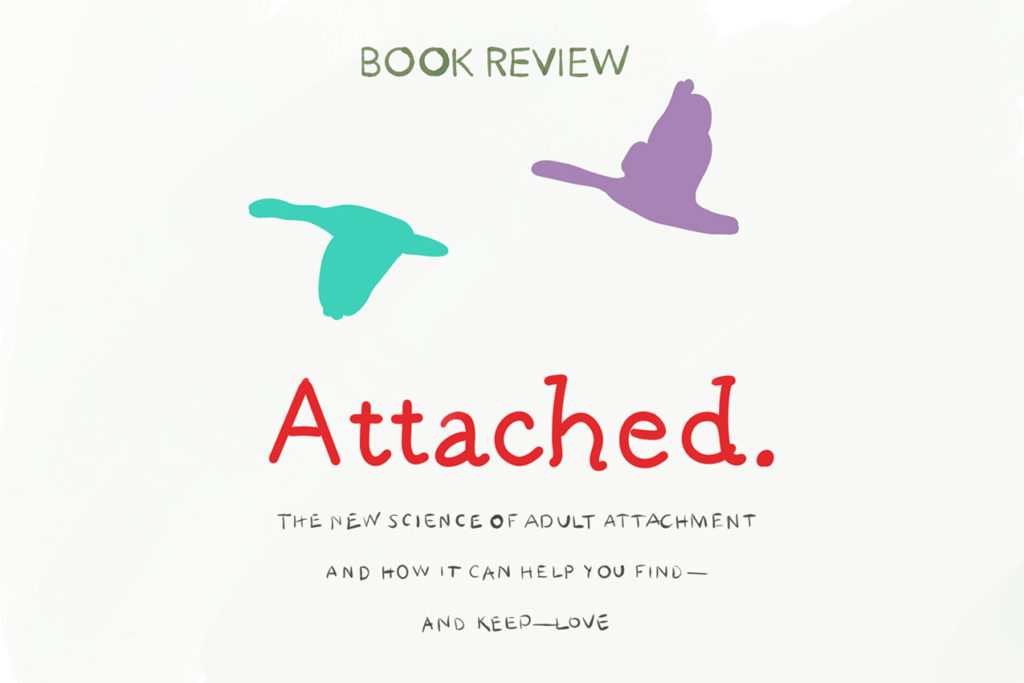Understanding 4 Attachment Styles with the Guidance of the Book, “Attached”
by Roamers Therapy | July 2020
“Most people are only as needy as their unmet needs. When their emotional needs are met, they usually turn their attention outward. This is the “dependency paradox”: The more effectively dependent people are on one another, the more independent and daring they become.”
Amir Levine and Rachel S.F. Heller
The Book
The book “Attached”, by Amir Levine, M.D., and Rachel S.F. Heller, M.A., captures the essence of attachment styles and challenges the notion that dependency is this “bad thing” most of us were taught.
Amir Levine and Rachel Heller show how independence ensues when we allow ourselves to depend on another person who can effectively fulfill our needs. In other words, at the root of healthy relationships lies a mutual fulfillment of emotional needs that encourages independence.
Attachment Styles
The authors explain the development of distinct attachment styles during people’s upbringing and categorize the attachment styles (not in order) as:
- Anxious: overanalyzing partner’s signals, second guessing their feelings, and worrying they may lose interest or end the relationship.
- Avoidant: learned to fend for themselves and project high self-confidence, acting unaffected if a partner comes or goes.
- Secure: comfortable with intimacy, develops romantic relationships relatively easily.
- Anxious-avoidant (disorganized): fears abandonment/loss of their partner’s love, inability to express their needs.
However, the book does not conclude that we cannot change and develop more secure attachment styles during our adulthood. It is indeed possible to grow out of an attachment style. It takes work and guidance.
The key to healthier relationships is to become aware of our emotional needs, the tendencies that pertain to our attachment styles, as well as the interactions that may occur with opposing styles.

To learn more about the book itself, visit their website at: https://www.attachedthebook.com/wordpress/about-the-book/
You can also borrow the book from Chicago Public Library at: https://chipublib.bibliocommons.com/item/show/2032625126
Book an appointment for better mental health at Roamers Therapy, or read more sketches to develop your understanding of mental health.
At Roamers Therapy, our psychotherapists are here to support you through anxiety, depression, trauma and relationship issues, race-ethnicity issues, LGBTQIA+ issues, ADHD, Autism, or any challenges you encounter. Our psychotherapists are trained in Cognitive Behavioral Therapy, Dialectical Behavioral Therapy, Psychodynamic Therapy, Acceptance, and Commitment Therapy, Person-Centered Therapy, and Gottman Therapy.
Whether you’re seeking guidance on a specific issue or need help navigating difficult emotions, we’re ready to assist you every step of the way.
Contact us today to learn more about our services and schedule a session with our mental health professionals to begin your healing journey. To get started with therapy, visit our booking page.
First, decide if you’ll be paying out-of-pocket or using insurance. If you’re a self-pay client, you can book directly through the “Book Now” page or fill out the “Self-Pay/Out-of-network Inquiry Form.” If you’re using insurance, fill out the “Insurance Verification Form” to receive details about your costs and availability. Please let us know your preferred therapist. If your preferred therapist isn’t available, you can join the waitlist by emailing us. Once your appointment is confirmed, you’ll receive intake documents to complete before your first session.
This page is also part of the Roamers Therapy Glossary; a collection of mental-health related definitions that are written by our therapists.
While our offices are currently located at the South Loop neighborhood of Downtown Chicago and Lakeview on Chicago’s North Side, Illinois, we also welcome and serve clients for online therapy from anywhere in Illinois and Washington, D.C. Clients from the Chicagoland area may choose in-office or online therapy and usually commute from surrounding areas such as River North, West Loop, Gold Coast, Old Town, Lincoln Park, Rogers Park, Logan Square, Pilsen, Bridgeport, Little Village, Bronzeville, South Shore, Hyde Park, Back of the Yards, Wicker Park, Bucktown and many more. You can visit our contact page to access detailed information on our office location.

